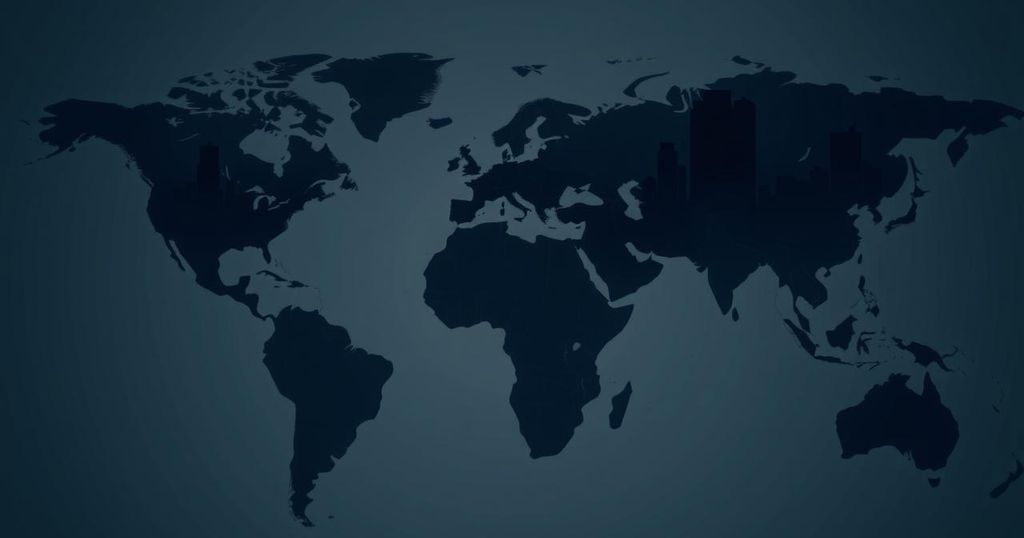Politics
AFRICA, AGNES MUKARUGOMWA, AGNÈS MUKARUGOMWA, ANA, ANASTASE NKUNDUKOZERA, BELGIUM, BI, BIZIMANA, BRUSSELS, CL, CORRUPTION, DEMOCRACY, DOMINIQUE NTAWUKURIRYAYO, EUROPE, HUMAN RIGHTS, HUMAN_RIGHTS, ICTR, IKONDERA LIBRE, INTERAHAMWE, JAM, JEAN - DAMASCÈNE BIZIMANA, JEAN - DAMASCENE BIZIMANA, JOSEPH MATATA, LAU, LAURE UWASE, MAXIM, MAXIME PREVOT, MBONYUMUTWA, NATIONAL UNITY AND CIVIC ENGAGEMENT, PAR, PETER VERLINDEN, PL, PLACIDE KAYUMBA, RWANDA, SERGE DESOUTER, TS, UWASE
Leila Ramsay
0 Comments
Belgium’s Alleged Funding of Genocide Denial: Insights from Rwandan Minister
Belgium faces allegations of funding genocide denial organizations related to the 1994 Genocide against the Tutsi in Rwanda, as stated by Minister Bizimana. He criticizes Belgium for failing to prosecute denialists and issues of international law enforcement regarding the FDLR. Tensions escalate following Rwanda’s diplomatic severance with Belgium and recent EU sanctions on Rwandan officials, highlighting ongoing regional conflicts and historical misalignment.
Belgium has been accused of financing prominent organizations that deny the 1994 Genocide against the Tutsi in Rwanda. Minister of National Unity and Civic Engagement, Jean-Damascène Bizimana, stated that Belgium’s funding extends to groups such as CLIIR, led by Joseph Matata, and JAMBO ASBL, founded by descendants of the former ruling party and convicted genocide perpetrators.
Bizimana refuted claims from Belgium’s Deputy Prime Minister Maxime Prevot, who affirmed Belgium’s commitment to combating genocide denial and adhering to international humanitarian law. He contended that despite these claims, Belgium has consistently supported genocide denial organizations while failing to prosecute individuals within its borders who deny the genocide.
Furthermore, Bizimana criticized Belgium for not enforcing UN Resolution 2150 against the FDLR, a terrorist group comprised of former Rwandan military members responsible for the genocide, which Belgium allegedly backs. He stated, “Belgium does not condemn the Tshisekedi regime for arming and collaborating with the FDLR,” highlighting Belgium’s failure to act on violations of international law.
Addressing the plight of Congolese refugees displaced by the FDLR since 1994, Bizimana posed a rhetorical question regarding their future: “Will these refugees remain in exile forever?” This, he asserted, calls into question Belgium’s adherence to international humanitarian law.
British journalist Linda Melvern elaborated on the issue, noting the ongoing denial of the genocide and emphasizing that the genocidal forces, although defeated in 1994, have not been eradicated. She argued that this ongoing denial misrepresents the narrative surrounding the genocide.
On March 16, President Paul Kagame warned Belgium against interference in Rwandan matters, citing Belgium’s colonial history and its role in regional conflicts. This led to Rwanda severing diplomatic ties with Belgium and expelling its diplomats, escalating tensions between the countries amid ongoing conflict in eastern DR Congo.
The European Union has recently sanctioned Rwandan military officials due to alleged connections to a Congolese rebellion, which has further complicated Belgium’s stance in the region. Kagame criticized these sanctions as baseless, pointing out the irony that those inciting conflict are now seeking to impose penalties on Rwanda.
In summary, Belgium is under scrutiny for financially supporting organizations that deny the Rwandan Genocide, an action criticized by Rwanda’s government. Minister Bizimana’s statements challenge Belgium’s commitment to preventing genocide denial and upholding international humanitarian law. The situation remains tense as diplomatic relations fray, compounded by ongoing conflicts in DR Congo and resultant sanctions from the EU. These developments raise significant ethical questions concerning historical accountability and contemporary geopolitical relations in the region.
Original Source: www.newtimes.co.rw




Post Comment